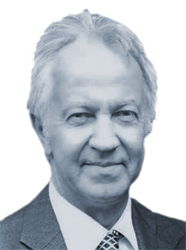 The dusty streets of Pristina and the pot-holed road out to Kosovo’s little airport are a long way removed from the five-star luxury which cushions the existence of the men in Zurich who debate, today and tomorrow, the multi-million future of FIFA.
The dusty streets of Pristina and the pot-holed road out to Kosovo’s little airport are a long way removed from the five-star luxury which cushions the existence of the men in Zurich who debate, today and tomorrow, the multi-million future of FIFA.
Yet they are connected directly not so much by an aircraft as by a three-page letter. That was the missive despatched to FIFA at the end of last month by Fadil Vokrri, one-time favourite of Partizan Belgrade, who is now president of the Kosovo football federation.
This is a national association which exists – and does not.
Kosovo is one of the many unresolved issues arising out of the Balkan conflagration; a state, but one which awaits formal recognition as such by the United Nations . . . a diplomatic frontier which cannot be crossed without the concession of Serbia to the north, rump of the former Yugoslavia.
Politics and sport are inextricably linked. Events in Zurich over the next hours and days demonstrate the point: very few organisations are as politically fine-tuned as the major sports authorities, with FIFA the ultimate.
The sporting reality of the political fall-out in Kosovo is that its national team cannot play national team football, its clubs cannot play international club football and it’s only recently that they could claim any transfer monies from the foreign clubs who find it all too easy to take their best players.
Hence the letter from Fadil Vokrri which lies on the desk of Sepp Blatter while he focuses his time and effort on the grand affairs of his state: a stand-off with the present Brazilian government over its reluctance to fulfil the guarantees to which its predecessor acquiesced; the pressure from within FIFA for a cleansing and reform of its command and control systems; and a simultaneous resistance, also from within FIFA, to that very same process.
Vokrri is not asking for much. Kosovo took a significant step towards eventual, long-term membership of the FIFA family when it was incorporated into the Transfer Matching System. Now it is asking ‘merely’ for its teams to be allowed to play friendly matches against teams from those nations which have – politically – recognised Kosovo as an independent state.
It’s a slow process and Michel Platini’s UEFA – for all his championing of Europe’s minnows – has been notably reluctant to help.
A sum equivalent to the bill – flights, chauffeurs, hotels plus assorted extras – of the eight UEFA representatives attending this week’s FIFA executive committee would make a practical difference to the work and facilities for football amid the poverty of Kosovo.
But Vokrri is not even asking Blatter, Platini and Co for money: he just wants his teams to be able to play the game, to share a football pitch.
After all, that is what FIFA, UEFA and the rest are really supposed to be all about . . . isn’t it.
By Keir Radnedge






